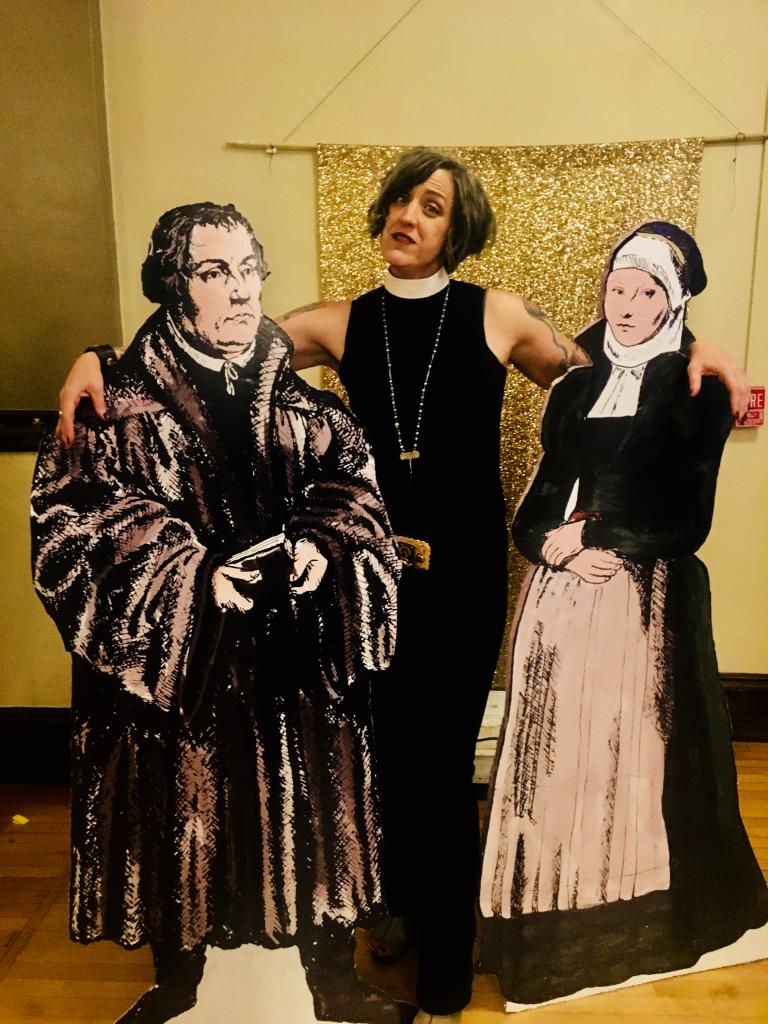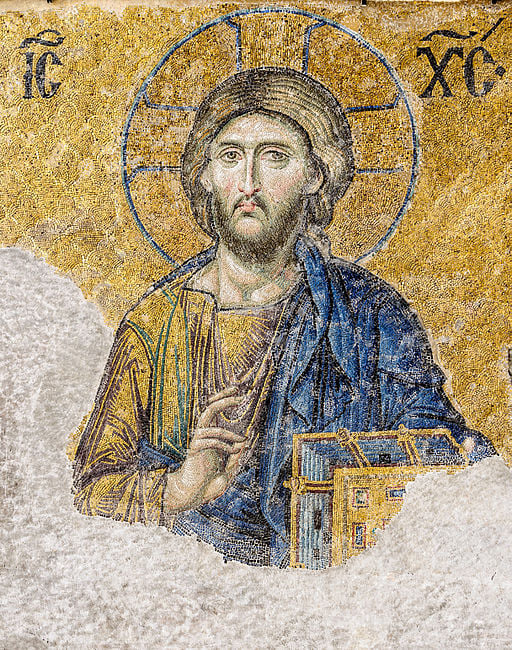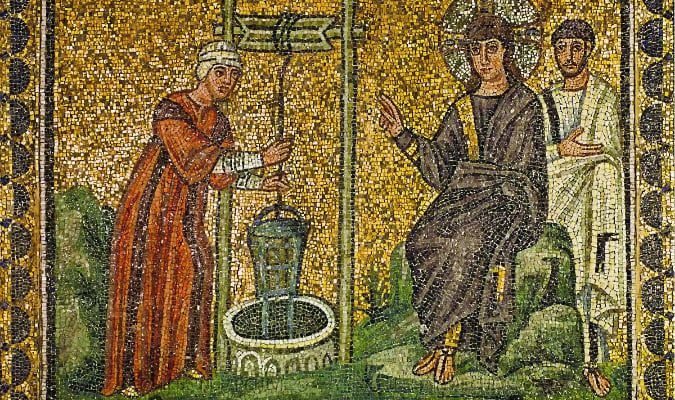2014 Ash Weds NBW Sermon<— click here to listen along.
People who think Ash Wednesday is depressing totally don’t get it. I mean, I understand why confessing our sins, marking ourselves with ashes and reminding each other that we are all going to die isn’t exactly Disney on Ice, but it’s not depressing. If anything it’s refreshing.
It’s refreshing in a way that only the truth can be… because we know deep down that we live in a death-denying culture which tries to tell us that we can live forever with the right combination of exercise, yoga, vacations and elective surgery. With enough money you can stretch, inject, massage and vacuum out enough skin and fat –as to appear that you have not actually lived each day of your life consecutively since your birth. And it’s all very tempting – especially to me as a middle aged woman, Yet we all know that after buying into all the anti-aging solutions society has to offer – you won’t actually be younger and you won’t actually look younger you’ll just look kinda shiny and misshapen. Which all feels like a metaphor for all our pathetic attempts at immortality.
So it’s a refreshing thing we and Christians all over the world do today. We gather to remind each other of the truth. To remind each other of our mortality. We tell each other the inescapable truth that we are dust and to dust we shall return. It’s downright audacious that amidst our societal anxiety about impermanence we just blurt out the truth as if it’s not offensive. But the thing about blurting out this kind of truth about ourselves…is that after you do it ..you can finally exhale. It’s like the moment when you stop having to spiritually hold your stomach in.
Because all the while we are denying the truth, God is delighting in it.
This is what we hear in Psalm 51:
Indeed, you delight in truth | deep within me
and would have me know wisdom | deep within.
And the thing is, this truth we speak tonight about our mortality is only offensive if it’s heard as an insult and not a promise. It’s only offensive when it’s heard as being the last word. And it’s not. It’s not the last word.
The same is true about confessing our sins. I’ve said it before but it bears repeating: People who think I’m some crazy liberal are always so shocked about how much I love to talk about sin. I think liberals tend to think admitting we are sinful is the same as having low self-esteem. And then conservatives equate sin with immorality. So one end of the church tells us that sin is an antiquated notion that only makes us feel bad about ourselves so we should avoid mentioning it at all. While the other end of the church tells us that sin is the same as immorality and totally avoidable if you can just be a good squeaky-clean Christian. Yet when sin is boiled down to low self-esteem or immorality then it becomes something we can control or limit in some way rather than something we are simply in bondage to. The reality is that I cannot free myself from the bondage of self. I cannot by my own understanding or effort disentangle myself from self interest – and when I think that I can …I’m basically trying to do what is only God’s to do.
So, to me, there is actually great hope in Ash Wednesday, a great hope in admitting my mortality and my brokenness because then I finally lay aside my sin management program long enough to allow God to be God for me. Which is all any of us really need when it comes down to it.
And this God of which I speak is nothing if not a God of hope and promise. Here’s the image I have of Ash Wednesday: If our lives were a long piece of fabric with our baptism on one end and our funeral on another, and us not knowing what the distance is between the two, well then Ash Wednesday is a time when that fabric is pinched in the middle and then held up so that our baptism in the past and our funeral in the future meet. With these ashes it is as though the water and words from our baptism plus the earth and words from our funerals have come from the future to meet us here today. And in that meeting we are reminded of the promises of God. Promises which outlast our piety, outlast our efforts in self-improvement, outlast our earthly bodies and the limits of time.
No week in recent history has this been as real to me as now. Yesterday I stood in a small restaurant on 6th ave and preached at the funeral of a 29 year old who took his own life. A man I’d never met. I don’t generally agree to do weddings and funerals of those who are not a part of this church. But Billy was queer and an artist and suffered from bi-polar and addiction so it felt like he could have belonged to us. So I stood and spoke of love and Jesus. And I looked his mother in the eyes and said that God is always present in love and in suffering. And that God was present both the moment Billy entered this world and the moment Billy left this world.
We are dust and to dust we return.
I did not know yesterday that today, 19 hours after standing in a funeral of one child I would stand in the birth room of another. Less than a day after preaching about love and suffering and Jesus I held Duffy and Charlie’s baby Willa in my arms and thanked God for brand new life.
Then her parents asked for ashes. For them and for Zane and baby Willa too. I pressed ever so gently into her brow, onto this brand new skin that had only been exposed to air for a few precious hours, and said that even she, full of beauty and hope and just hours from her mother’s womb, even she will return– return to dust and the very heart of God.
And then I knew. I knew more than any other Ash Wednesday in my life, that the promises of baptism and funerals, the promises of birth and death are so totally wrapped up together. For we come from God and to God we shall go. And that Oh my Gosh is there so much that gets in the way of that simple truth. And it is times like funerals when all the other BS just doesn’t matter anymore.
So Lent isn’t about punishing ourselves for being human – the practice of Lent is about peeling away layers of insulation and anesthesia which keep us from the truth of God’s promises. Lent is about looking at our lives in as bright a light as possible, the light of Christ. It is during this time of self-reflection and sacrificial giving and prayer that we make our way through the over grown and tangled mess of our lives. We trudge through the lies of our death-denying culture to seek the simple weighty truth of who we really are. Lent is about hacking through self-delusion and false promises. We let go of all the pretenses and the destructive independence from God. We let go of defending ourselves. We let go of our indulgent self-loathing. Then, like the prodigal son we begin to see a God running with abandon to welcome us home. But we can’t begin to see this God until we hack through our arrogance and certainty and cynicism and ambivalence. The Psalmist says that God delights in the truth that is deep in us. The truth. Therefore there’s no shame in the truth of who we are; the broken and blessed beloved of God. There’s no shame in the truth that our lives on earth will all end and that we are in bondage to sin and cannot free ourselves. It’s not depressing. What’s depressing is the desperation of trying to pretend otherwise. What’s depressing is to insist that I can free myself I just haven’t managed to pull it off yet.
What is so wonderful about Ash Wednesday and Lent is that through being marked with the cross and reminded of our own mortality we are free. Reminded that the God of your salvation, the same God who created you from the very earth to which you will return – the very God of Moses and Sarah and Abraham is also God for you. This God delights in the truth that you are God’s very own redeemed sinner beloved in all your broken beauty. So as you receive these ashes and hear the promise that you are dust and to dust you shall return, know that it is the truth and that the truth will set you free in a way that nothing else ever can.
Amen












